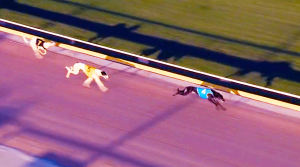
The Queensland government will ramp up their regulation surrounding retail casinos in the state.
The ongoing legal action in Australian states against Star Entertainment and Crown Resort has led to Queensland’s sudden declaration to establish new and strict gambling rules and regulations.
Western Australia (which is home to Crown Perth), New South Wales, and Victoria have all been closely monitored by the state.
The Queensland government is hell-bent on preventing its casinos from becoming criminal hubs.
Defaulters of these newly developed laws will be fined up to a sum of AUD$50million (US$35.46 million).
Star Entertainment and Crown Resorts have violated several laws by enabling the laundering of money, fraud, and foreign influence to occur at their facilities.
The knowledge of these activities resulted in many modifications in both organizations’ leadership as well as other disciplinary measures on the part of local regulators.
Queensland has stated the revision made on Thursday to amend the Casino Control Act Bill (CCAB), which aims to prohibit criminal behavior at casinos, such as fraudulent reporting, money laundering, and many other criminal activities.
The reform of the Casino Control Act Bill, according to the Attorney General and minister for justice, Shannon Fentiman, will lower the likelihood of unlawful acts by casinos. It will also help deter criminal organizations from fostering illicit activities.
Newly established changes on gambling policy
The measures include a move to cashless gambling and targeted casino integrity regulations.
Any licensee, lessee, or operator of a casino would perhaps incur fines of up to AUD$5 million (US$3.54 million) from the government through its gaming regulator or an executive body. The Governor in Council, on the other hand, would have the authority to impose fines of up to $50 million.
Other sanctions, such as those for improperly altering an approved control system, are also introduced by the CCAB. The fine, which is presently 200 penalty units, would be doubled.
Trying to interfere with an inspector is now punishable by a fine of 160 units instead of 40.
The authorities would also have the right to compel casinos to provide information, even if the manager considers it “confidential.” It would also have more liberty in initiating investigations, owing to the establishment of a lower threshold for authorities to initiate punitive proceedings against a company.
These amendments are thought to be best practices in casino policy, and they will be in effect before the Star’s new casino at Queen’s Wharf opens. Queen’s Warf will be replacing the local star-operated venue, Treasury Brisbane.
Queensland will implement secure payment systems and will assist businesses in making the move to cashless gaming, according to Fentiman. This, according to the local authority, will benefit the enterprises as a whole and help to avoid crime because electronic transactions are easily traceable and aid in the prevention of money crimes like money laundering.
Fentiman stated that innovation will be carried out with the goal of providing safe and ethical gambling. She went on to say that going cashless would help the sector adopt even more technological innovations.
Further changes to the Act, according to Fentiman, are expected. Much, though, hinges on the outcome of New South Wales’s investigation into Star’s operations.






